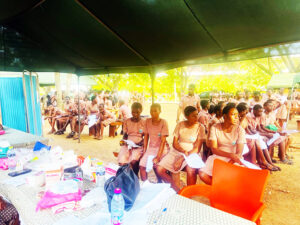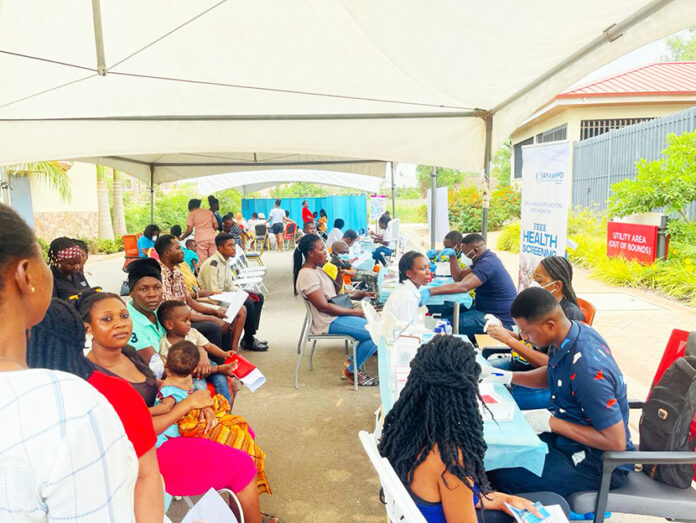Africa Health Promotion Organisation (HPO), a Ghanaian non-governmental organisation that provides free healthcare to rural and peri-urban dwellers, has observed that non-communicable diseases (NCD) account for 43 per cent of mortality in Ghana.
Also known as chronic diseases, Africa HPO made reference to the World Health Organisation (WHO), which says NCDs are the result of a combination of genetic, physiological, environmental and behavioural factors and that it accounts for 74 per cent of global deaths.

To Africa HPO, an individual often does not know they are carriers of one or more NCDs until the person is diagnosed with some minor sickness, which eventually shows traces of a hidden NCD.
These NCDs live long with a patient and early detection through regular medical check-ups usually enables the patient to be mindful of their health lifestyle.
Examples of prevalent NCDs in most communities in Ghana include stroke, cardiovascular diseases, diabetes, cancer and respiratory diseases.
To reduce these non-communicable diseases and save lives in parts of Ghana, Africa HPO, as part of its co-operate social responsibility (CSR), embarked on a five-day health screening initiative at Yilo and Manya Krobo in the Eastern Region.
The free healthcare services were to further support the people of Yilo and Manya Krobo as they prepare to celebrate their annual traditional festival.
The screening benefited students from the University of Environment and Sustainable Development, Yilo Krobo Senior High School, Manya Krobo Senior High as well as the Somanya and Odumasi communities.

During the exercise, Africa HPO detected other NCDs like HIV, Hepatitis B & C and Malaria, which the victims did not know until the tests were conducted and the results read to them. Immediately, the patients were linked up for treatment to slow down the progression of the diseases.
“Given what Africa HPO has observed here, I strongly believe that non-profit and non-governmental organisations must intensify their community-based health outreach programmes in the rural and peri-urban communities to promote public health to assist the Ministry of Health and Ghana Health Service in their effort to achieve ‘SDG 3,” Kisses Johnson Ahortor, the Executive Director of AfricaHPO, told The Chronicle.
In addition to Ultrasound scans, Fibroid, Cervical cancer, Prostate, Ear, Nose and Tongue (ENT), ante-natal and eye test-free screening services Africa HPO provided the people, it registered over 3,000 students and community members including children of the two Krobo areas, to the National Health Insurance Scheme. Sixty per cent of the beneficiaries were females.
Africa HPO held talks with the participants on healthy living and educated them on the right eating habits.
The Vice-Chancellor of the University of Environment and Sustainable Development (UESD), Professor Eric Nyarko-Sampson lauded the initiative by Africa HPO and reiterated the importance of the activity.
The District Chief Executive (DCE) for Lower Manya Krobo Municipality, Simon Tetteh, who monitored the exercise in the Municipality expressed gratitude to Africa HPO for organising the event, saying “Such events go a long way to help develop our communities and we will need more of such exercises to prolong our lifespans.”








